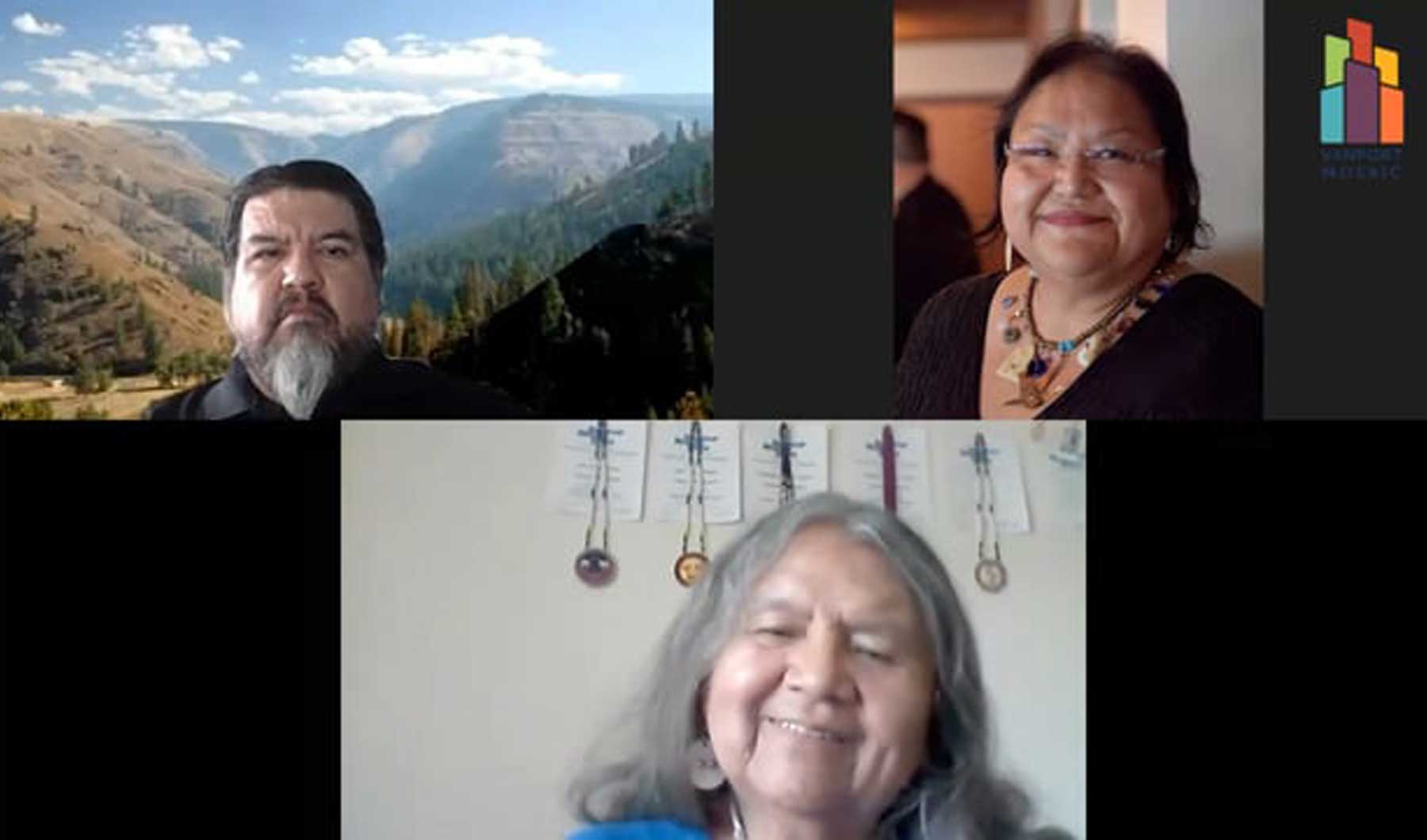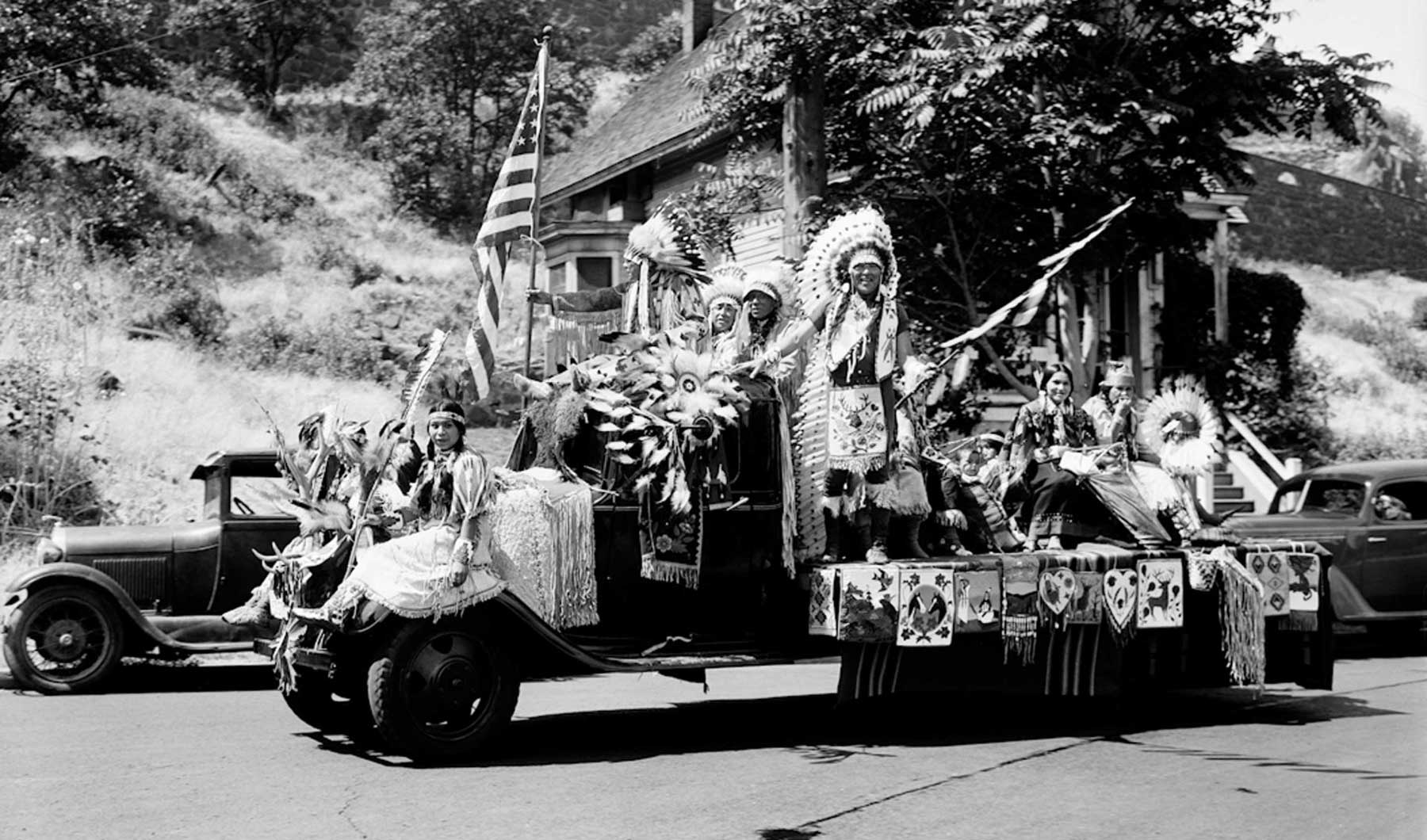This story collection is based on the conversation between Patricia Whitefoot (Yakama Nation), Elizabeth Woody (Warm Springs), and Chuck Sams (CTUIR) that we live-streamed on May 20th.
Discussion Questions
How do you define what it means to be “American” beyond citizenship?
What responsibilities do you think come with defining yourself as “American”?
Is “America” more of a place than an idea? Or are they equal concepts in how we define ourselves?
Videos
Confluence Conversations: Who Gets to be American?
On May 20th, Patricia Whitefoot (Yakama Nation), Elizabeth Woody (Warm Springs), and Chuck Sams (Umatilla) joined together for a thoughtful exploration of this theme in light of our country’s colonial legacy and Indigenous people’s enduring spirit and cultural resilience.
Tony Johnson: The Average American Doesn’t See That They Have a Culture
Tony Johnson (Chinook) talks about culture and what makes Chinook culture.
Robert Miller: Oregon, Indigenous Nations, Manifest Destiny, and the Doctrine of Discovery
This talk argues that the Doctrine of Discovery morphed into “American Manifest Destiny” and was used, and is still being used today, to justify the United States’ acquisition of the lands and assets of the Indian Nations and people.
Books
These books were referenced by our panelists:
1491 by Charles Mann.
Blood Struggle: The Rise of Modern Indian Nations and other books by Charles Wilkinson
In the Light of Justice: The Rise of Human Rights in Native America and the UN Declaration on the Rights of Indigenous Peoples and other books by Walter Echo-Hawk
Shadow Tribe: The Making of Columbia River Indian Identity by Andrew Fisher
The Gift of Knowledge / Ttnuwit Atawish Nch’inch’imam: Reflections on Sahaptin Ways by Virginia Beavert
The Si’lailo Way: Indians, Salmon, and Law on the Columbia River by Kathleen S. Hill, Joseph C. Dupris, and William H. Rodgers
The way it was:Anaku Iwacha: Yakama legends compiled by Virginia Beavert
Confederated Tribes of Warm Springs Bibliography
Courtesy of Elizabeth Woody
Shorts Texts
Honoring Tribal Legacies
Honoring Tribal Legacies: An Epic Journey of Healing (HTL) is a digital handbook providing educators with resources to teach a more collective history of Lewis and Clark’s Corps of Discovery and the nation’s journey west.
The Doctrine of Discovery
The discovery doctrine has been used as a legal justification for colonization and seizure of lands inhabited by non-Christians, starting in 1493 with Pope Alexander VI’s papal issue. Read more at the link.
Pope Alexander VI. Demarcation Bull Granting Spain Possession of Lands Discovered by Columbus Rome, May 4, 1493.
The full text of Pope Alexander VI’s issue.


